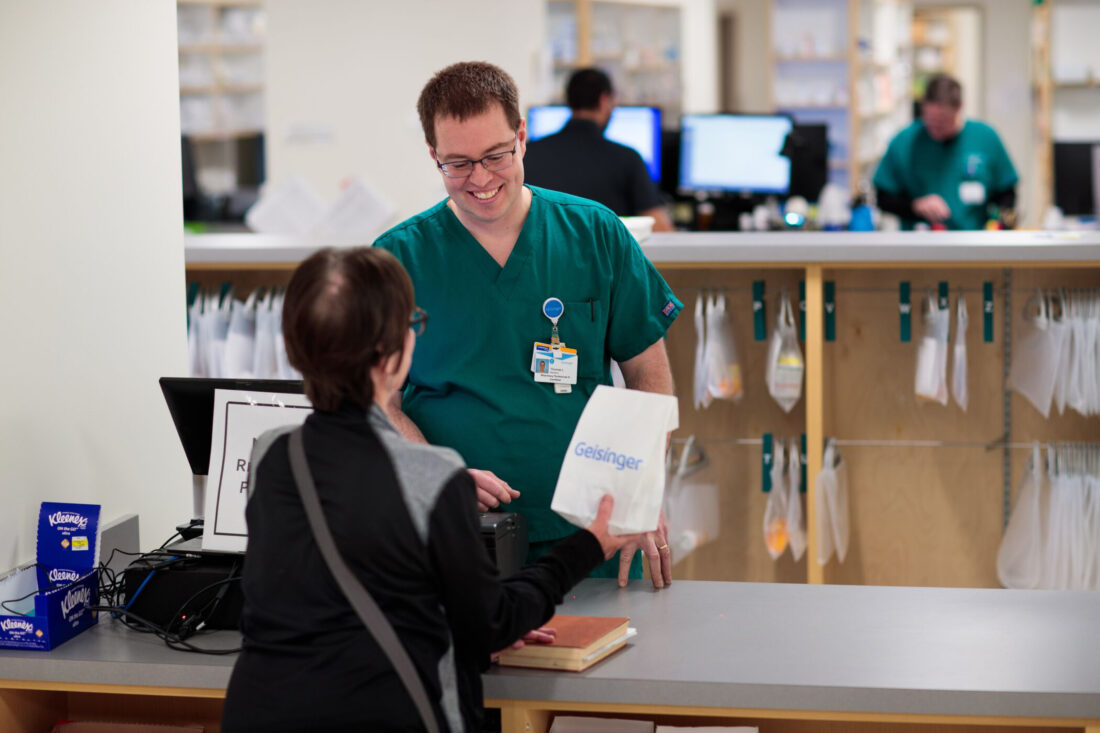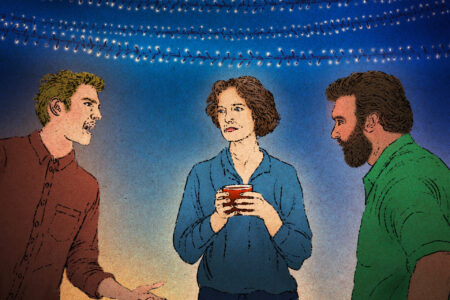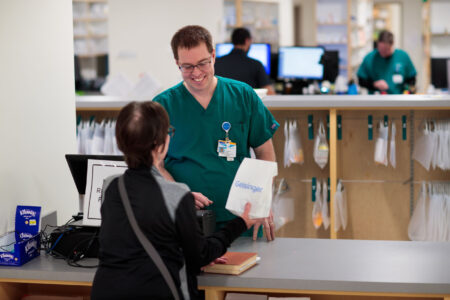Leftover meds? Here’s why you shouldn’t share them with friends or family

PHOTO PROVIDED Geisinger Pharmacy Manager Kathleen Fanzo explains why it’s best to not share leftover medication with friends or family.
Whatever happened to those antibiotics you ended up not needing? Or that leftover pain medicine from an old knee injury? You might think they’re fine to pass along to someone else with a similar condition. Before you share, think twice. Sharing meds isn’t a good idea.
It’s illegal
Prescribed medicine is a controlled substance, and it’s only intended for the person it’s prescribed to. And sharing it violates state and federal laws.
That means sharing your old or unwanted medicine with someone could potentially land you in trouble.
It may cause unwanted
side effects
If someone takes a drug that was meant for you, they could have an allergic reaction. It could also lead to more severe side effects, especially if it’s a higher dose than they’d normally need. And if it’s a lower dose than they need, it could mean the medicine doesn’t work for them. Taking the wrong medication dose can lead to antibiotic resistance and make some medicines less effective in the future.
Sharing meds can lead to side effects for you, too, if you’re not taking your medicine for the prescribed amount of time or taking a smaller dose. With antibiotics, it can also mean your body doesn’t get rid of the infection.
It can interact with
other medicines
When you get a prescription from your provider, everything from the type of drug to the dosage is specific to you. They also consider other medications, vitamins and supplements you’re taking. And they’ll know which medicines you may be allergic or sensitive to.
Healthcare providers prescribe medications so they can be properly monitored. This helps them make sure the drug is working the way it should.
If you share this medicine with someone, it could potentially interact with something else they have in their medicine cabinet.
It could be less effective
Besides being prescribed for someone else, outdated medication can become less effective. Medication can break down over time, making it less potent. That means it may not work as well.
In addition to time, other things can break down medication, like:
— Humidity
— Light
— Air
— Temperature fluctuations
— Improper storage
That’s why taking damaged or expired medicine isn’t a good idea.
It might not be
what you think it is
Have you ever seen a pill and wondered what it is? Is it something to treat high blood pressure? Or acid reflux? Taking a mystery pill yourself (or giving one to someone else) can spell trouble. Especially if it’s not in an original container. “You or someone else may be taking a completely different medication that could cause serious side effects,” says Ms. Fanzo.
It could end up in
the wrong hands
Unused and expired prescriptions often end up in the wrong hands. These medicines can be appealing to young children and teenagers. This can have serious consequences, including:
— Accidental overdose
— Allergic reactions
— Risk of misuse
What to do with
old prescriptions
If you do have unused medication — whether it’s prescription or over the counter — proper disposal is key.
“Never flush medication down the toilet or place it in the trash. That’s how they end up in landfills or find their way into the water supply.
Instead, to get rid of old medication:
— Find a local drug take back day in your area
— Use a medication drop box. Find them at local municipal buildings and most pharmacies, including Geisinger Pharmacy.
For the latest health and wellness tips and advice, visit geisinger.org/balance.
— — — —
Kathleen Fanzo is a pharmacy manager at Geisinger.



